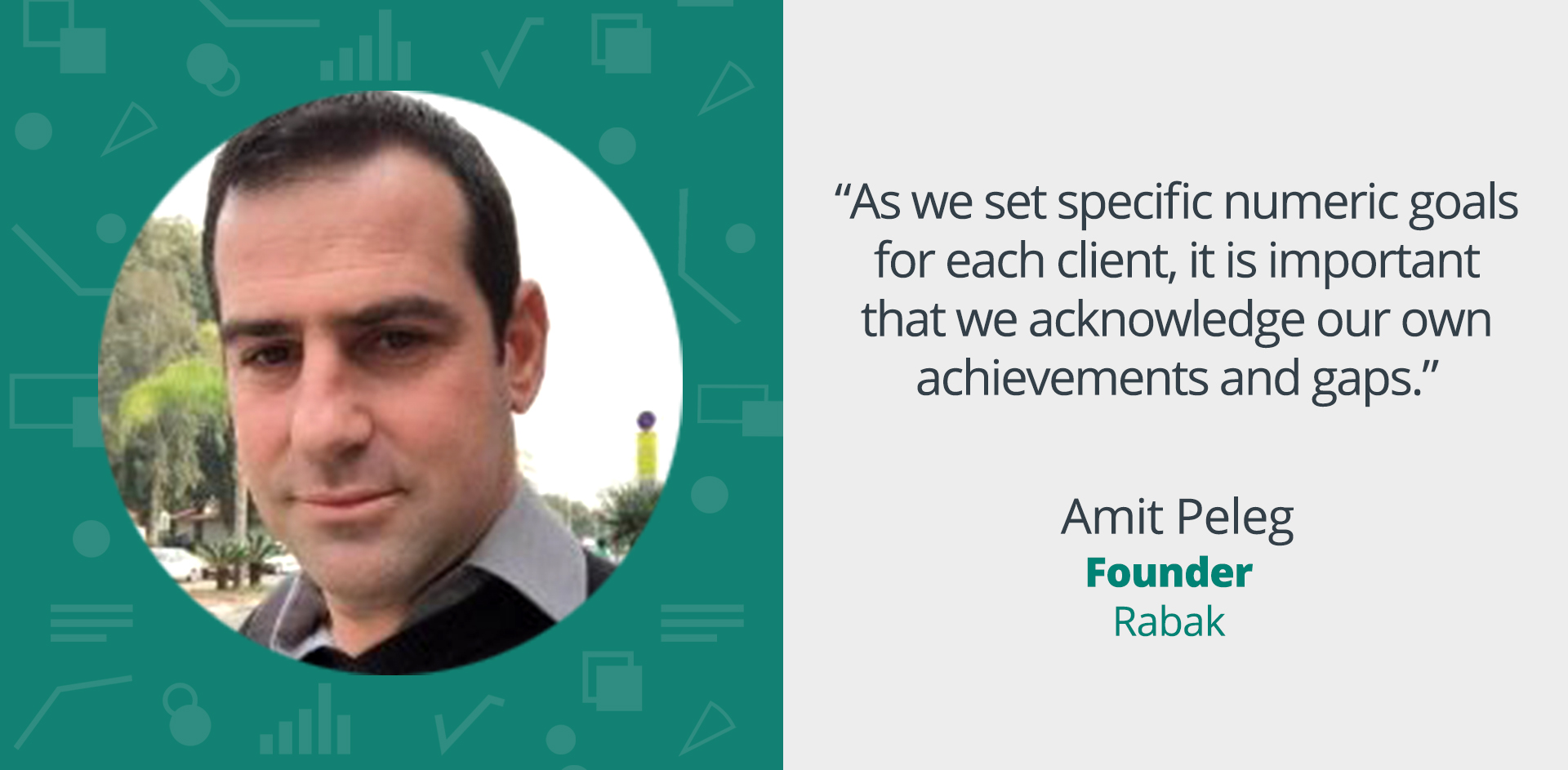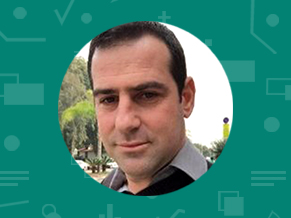Q&A: Amit Peleg, Founder of Rabak
 We took time out to chat with Amit Peleg, founder of digital performance marketing agency, Rabak. He told us about his day-to-day helping clients and staying ahead of industry changes and explains why the Internet of Things is the next big thing.
We took time out to chat with Amit Peleg, founder of digital performance marketing agency, Rabak. He told us about his day-to-day helping clients and staying ahead of industry changes and explains why the Internet of Things is the next big thing.
OB: Tell me about your background. How did you get into the performance/digital marketing space?
AP: My first job as a service provider in the digital marketing arena was 11 years ago as an account manager at Compucall, one of the leading digital marketing agencies at the time.
Two weeks later I became a team lead and six months after that, I was promoted to VP of Clients, responsible for three operational web marketing teams, including SEO, SEM, email marketing, social marketing, web development, and web analytics.
Our focus was always on performance marketing and provided it to many leading brands such as Cellcom, Elal Israeli Airlines, Sandisk, Mizrach Tefachot Bank, ECI, and Netvision. We had one big brand in every major field and industry (insurance company, bank, a communication company, travel, and so on).
In 2010 Compucall got acquired by the biggest advertising agency in Israel, Mccann Ericson and was rebranded as Universal McCann Search.
After two-and-a-half years at McCann, I made the move to GO Internet Marketing a digital performance marketing agency as VP of Client Services. We worked with clients such as Bank Leumi, Dan Hotels, Materna, Ossem, and Shlomo Sixt.
Then in 2015, with years of digital marketing knowledge under my belt, I finally established my own digital performance marketing agency called Rabak.
OB: What does your day-to-day look like?
AP: I begin my day by reviewing the previous day’s outputs—the performance and results of our clients’ accounts.
As we set specific numeric goals for each client, it is important that we acknowledge our own achievements and gaps.
Next I spend some time reading and learning about the current professional news in the industry. As performance marketing is constantly changing, it is vital to be informed about new platforms, features, tools, channels, performance methodologies, and other trends.
I also like to spend at least two hours a day with on-hands on tasks such as optimizing a few accounts on my own. I do so, so I can stay in shape and remind myself of the basics of performance marketing.
Of course my day also consists of various management tasks such as communications with our clients, team management, financial tasks, and sales.
OB: What are your goals in your job and how do you approach meeting them?
AP: I have a number of goals but the top three are:
- Making sure that my team and I enjoy what we do.
- Keep learning, improve ourselves, and share our knowledge with our clients.
- And finally as we focus on the bottom line, our goal is to generate more profits coming from clients’ digital assets (i.e. more conversions with a lower cost per action).
OB: What excites you most about the industry? What do think will be the next big thing?
AP: I get excited by immediate satisfaction 😊 : our users. Most of the activities in online performance marketing enable you to get quick results. You can sit in your office in Kfar Saba and push users anywhere in the world to act and achieve a desired result. It is also fun to analyze a market, product, or service then try and “predict” the results, plan the activities, execute and optimize it, and see if we were accurate in our predictions.
I think the next big thing (warning: here comes the buzzword) is IOT—Internet of Things.
As all of our surroundings are continuously getting connected online through cars, home products, cities, airports, planes, and trains, we will have more points of contact with end users. We will be able to promote products and services with better timing and at the very best location on new advertising platforms.
For example, a car is now connected online and therefore can transmit its location, destination, fuel level, and a number of additional technical data. This data can generate many opportunities for companies to offers their products and services. A gas station can potentially know the user’s tank is almost empty and if their station is on the way, it can send a push notification to the user as both a helpful reminder and advertisement.
OB: What do you find most challenging as a performance marketer? How do you approach these challenges?
AP: It is all about providing value to the end user; to suggest something that an individual needs at the right time and place.
The main challenge is to find the right segment for that specific product or service, to convey an applicable message and boom! It happens.
OB: How do you define “performance marketing”? Do see performance marketing as different than “digital marketing?” How do you think your role is perceived in the larger marketing industry?
AP: Collecting demands and bottom of the funnel. Performance is only one part of digital marketing. The other part is brand awareness and storytelling or in other words the demands generation.
Performance marketing is the part which gets the juice. The credit of sales. It is very easy to track, analyze, and explain. The other part is far hazier.
The larger marketing industry saw that clients know to ask for performance marketing services which lead to many big, classic advertising houses acquiring performance agencies to enable them to provide full service.
OB: Tell me one surprising thing about yourself. Additionally, if there’s anything new and interesting you recently discovered.
AP: I have a pilot license with over 250 hours of flying. One day I might find myself in a cockpit and another, in front of different screens. 😊
These days we have a new way of running amazing performance agencies—there is no longer a need for the traditional office structure. Today you can work with top, experienced professionals while providing the best bottom lines for clients from the team’s preferred location.
Today we talk, chat, text, email, run video calls from anywhere and everywhere with great efficiency—IOT after all. 😊



